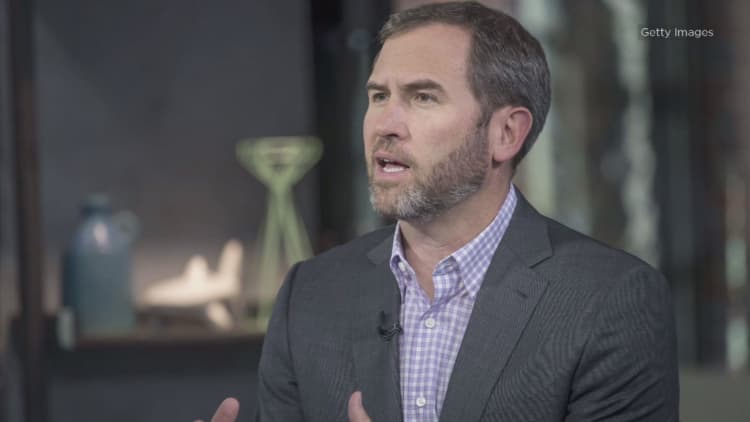Governments around the world are right to step up regulatory pressure on initial coin offerings (ICOs), the CEO of blockchain firm Ripple has told CNBC.
Brad Garlinghouse, whose company is the owner of the third-largest cryptocurrency by market capitalization, XRP, questioned whether new digital currencies were "solving real problems."
"There's plenty examples of these recent ICOs that I don't think are good for the industry because they are not demonstrating or solving a real problem and you are seeing examples of fraud," he told CNBC in an interview Monday.
"And so I think it's good that you have regulators intervening and stepping in, in countries around the world."
ICOs are a means for start-ups to raise funds selling new virtual currencies in exchange for bitcoin or ethereum. But they have caused a stir internationally in recent weeks, with a number of regulators either clamping down or banning them outright.
Garlinghouse said Ripple, by contrast, is focused on solving a "trillion dollar problem" with its distributed ledger platform, which connects banks with payment providers and cryptocurrency exchanges.

Why are ICOs so controversial?
Both China's and South Korea's regulators have chosen to ban the sale of new digital tokens. The price of bitcoin fell sharply following China's ban.
Research has shown that companies have gained more funding through ICOs than venture capital investments.
But experts believe the practice can lure investors into scams and lead to money laundering.
Recently, a number of celebrities have used their social media platforms to give publicity to start-ups seeking to raise capital through ICOs. Some investors have raised concern about these endorsements.
Last week, CNBC reported that Ghostface Killah, founding member of U.S. rap group Wu-Tang Clan, had co-founded a cryptocurrency venture. Killah joined a long line of high profile figures — including Floyd Mayweather, Paris Hilton and Jamie Foxx — to have put his name to an ICO.
Other regulators have issued warnings on digital token sales, from the U.K.'s Financial Conduct Authority to Abu Dhabi's Financial Services Regulatory Authority.





